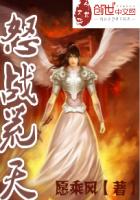"Really, you are quite provident. Well, seeing I'm in the hands of a Yankee, there is nothing for it but to concede;" and St. Clare rapidly wrote off a deed of gift, which, as he was well versed in the forms of law, he could easily do, and signed his name to it in sprawling capitals, concluding by a tremendous flourish.
"There, isn't that black and white, now, Miss Vermont?" he said, as he handed it to her.
"Good boy," said Miss Ophelia, smiling. "But must it not be witnessed?"
"O, bother!--yes. Here," he said, opening the door into Marie's apartment, "Marie, Cousin wants your autograph; just put your name down here."
"What's this?" said Marie, as she ran over the paper.
"Ridiculous! I thought Cousin was too pious for such horrid things," she added, as she carelessly wrote her name; "but, if she has a fancy for that article, I am sure she's welcome."
"There, now, she's yours, body and soul," said St. Clare, handing the paper.
"No more mine now than she was before," Miss Ophelia.
"Nobody but God has a right to give her to me; but I can protect her now."
"Well, she's yours by a fiction of law, then," said St. Clare, as he turned back into the parlor, and sat down to his paper.
Miss Ophelia, who seldom sat much in Marie's company, followed him into the parlor, having first carefully laid away the paper.
"Augustine," she said, suddenly, as she sat knitting, "have you ever made any provision for your servants, in case of your death?"
"No," said St. Clare, as he read on.
"Then all your indulgence to them may prove a great cruelty, by and by."
St. Clare had often thought the same thing himself; but he answered, negligently.
"Well, I mean to make a provision, by and by."
"When?" said Miss Ophelia.
"O, one of these days."
"What if you should die first?"
"Cousin, what's the matter?" said St. Clare, laying down his paper and looking at her. "Do you think I show symptoms of yellow fever or cholera, that you are making post mortem arrangements with such zeal?"
"`In the midst of life we are in death,'" said Miss Ophelia.
St. Clare rose up, and laying the paper down, carelessly, walked to the door that stood open on the verandah, to put an end to a conversation that was not agreeable to him. Mechanically, he repeated the last word again,--_"Death!"_--and, as he leaned against the railings, and watched the sparkling water as it rose and fell in the fountain; and, as in a dim and dizzy haze, saw flowers and trees and vases of the courts, he repeated, again the mystic word so common in every mouth, yet of such fearful power,--"DEATH!"
"Strange that there should be such a word," he said, "and such a thing, and we ever forget it; that one should be living, warm and beautiful, full of hopes, desires and wants, one day, and the next be gone, utterly gone, and forever!"
It was a warm, golden evening; and, as he walked to the other end of the verandah, he saw Tom busily intent on his Bible, pointing, as he did so, with his finger to each successive word, and whispering them to himself with an earnest air.
"Want me to read to you, Tom?" said St. Clare, seating himself carelessly by him.
"If Mas'r pleases," said Tom, gratefully, "Mas'r makes it so much plainer."
St. Clare took the book and glanced at the place, and began reading one of the passages which Tom had designated by the heavy marks around it. It ran as follows:
"When the Son of man shall come in his glory, and all his holy angels with him, then shall he sit upon the throne of his glory: and before him shall be gathered all nations; and he shall separate them one from another, as a shepherd divideth his sheep from the goats." St. Clare read on in an animated voice, till he came to the last of the verses.
"Then shall the king say unto him on his left hand, Depart from me, ye cursed, into everlasting fire: for I was an hungered, and ye gave me no meat: I was thirsty, and ye gave me no drink: I was a stranger, an ye took me not in: naked, and ye clothed me not:
I was sick, and in prison, and ye visited me not. Then shall they answer unto Him, Lord when saw we thee an hungered, or athirst, or a stranger, or naked, or sick, or in prison, and did not minister unto thee? Then shall he say unto them, Inasmuch as ye did it not to one of the least of these my brethren, ye did it not to me."
St. Clare seemed struck with this last passage, for he read it twice,--the second time slowly, and as if he were revolving the words in his mind.
"Tom," he said, "these folks that get such hard measure seem to have been doing just what I have,--living good, easy, respectable lives; and not troubling themselves to inquire how many of their brethren were hungry or athirst, or sick, or in prison."
Tom did not answer.
St. Clare rose up and walked thoughtfully up and down the verandah, seeming to forget everything in his own thoughts; so absorbed was he, that Tom had to remind him twice that the teabell had rung, before he could get his attention.
St. Clare was absent and thoughtful, all tea-time. After tea, he and Marie and Miss Ophelia took possession of the parlor almost in silence.
Marie disposed herself on a lounge, under a silken mosquito curtain, and was soon sound asleep. Miss Ophelia silently busied herself with her knitting. St. Clare sat down to the piano, and began playing a soft and melancholy movement with the AEolian accompaniment. He seemed in a deep reverie, and to be soliloquizing to himself by music. After a little, he opened one of the drawers, took out an old music-book whose leaves were yellow with age, and began turning it over.
"There," he said to Miss Ophelia, "this was one of my mother's books,--and here is her handwriting,--come and look at it.
She copied and arranged this from Mozart's Requiem." Miss Ophelia came accordingly.
"It was something she used to sing often," said St. Clare.
"I think I can hear her now."
He struck a few majestic chords, and began singing that grand old Latin piece, the "Dies Irae."













